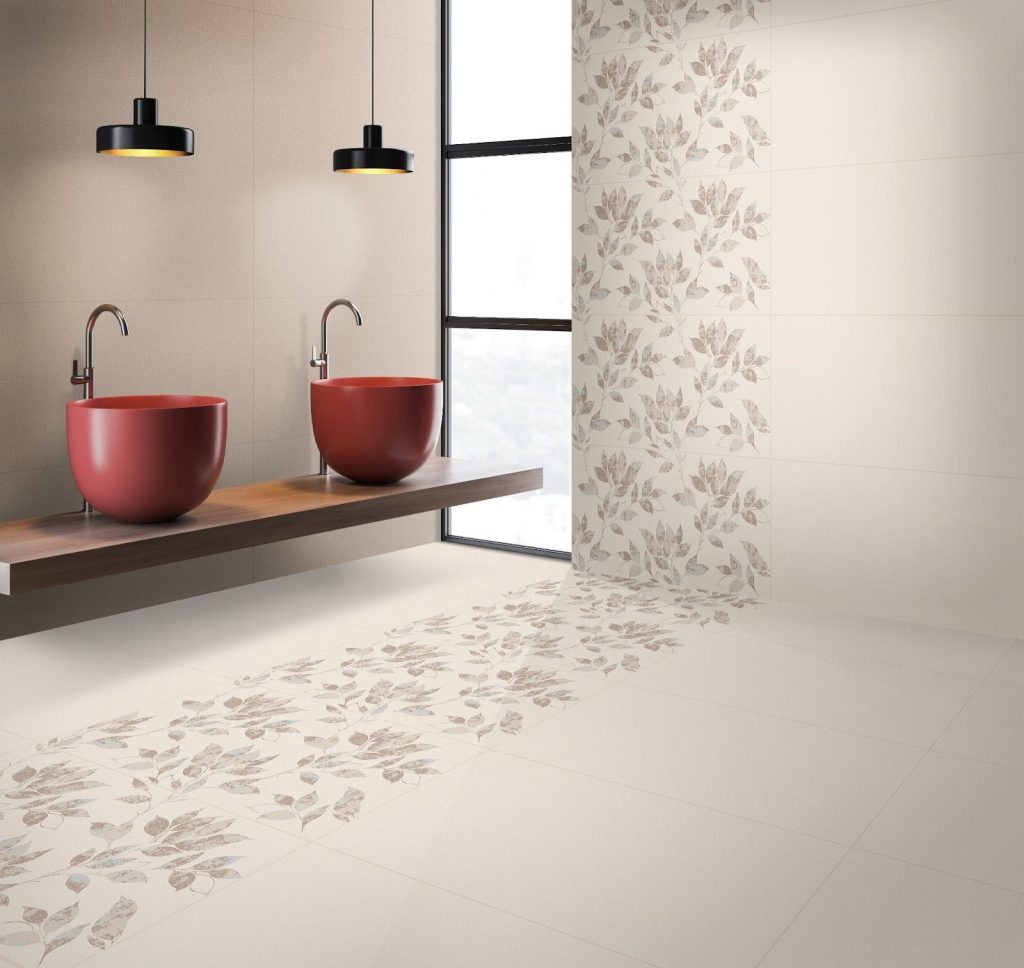Spa-like bathroom tile ideas: anti-skid and stain-resistant options
Safety should always be a priority when considering a shower remodel. With water and soap frequently accumulating, bathrooms can quickly become risky spaces without the proper materials. Choosing the best shower tiles means considering water resistance, cost, and appearance. Though some homeowners opt for uniform tiles on both walls and floors, paying extra attention to the flooring for safety is important.
The suitable tiles significantly reduce the risk of slips and falls, creating a safer environment for everyone. Not only do these tiles improve safety, but they are also designed for easy cleaning and maintenance, resisting both stains and moisture to keep your bathroom looking pristine.

Are you planning to refresh your bathroom flooring? Discover our top tile options below for more ideas and design inspiration!
Top Picks For Safe & Chic Bathroom Tiles
Mosaic
For you and your family to utilise the shower, it’s imperative that the floor tiles in your bathroom are secure and smooth. Selecting smaller or mosaic tiles will enhance the traction beneath your feet, and matte or textured finishes further lessen the chance of slipping. Finding reasonably priced, non-slip, and stain-resistant alternatives is made simple by the variety of materials that mosaic tiles come in.
These tiles aren’t just about looks—they’re built to last, with durable materials like glass and marble that stand the test of time. For a more luxurious vibe, consider marble tiles on the walls. They elevate the space with timeless elegance while offering incredible lifetime durability.
Marble bathroom tiles bring natural veining and texture to your design, creating a refined and classic look. Despite their small size, mosaic tiles can be arranged into eye-catching patterns, allowing you to express your style and make a bold design statement that stands out.
Porcelain and Ceramic
Porcelain and ceramic tiles are ideal choices for shower floors because of their exceptional water resistance and durability. Because of their solid construction, these tiles have a high level of water, stain, and scratch resistance. Additionally, they provide a wide range of sizes, patterns, and colours, so you have a lot of creative alternatives. There are textured coatings available to lessen slipping for enhanced safety. Adequate waterproofing, porcelain and ceramic tile installation can be challenging and calls for expert help.
If radiant floor heating isn’t incorporated for increased comfort, porcelain and ceramic tiles may feel cold underfoot. They are great as bathroom wall tiles, especially when glazed for added protection, but they also make excellent shower floors because of their water resistance and anti-skid qualities.
Glass Tiles
Glass tiles are highly sought after because of their sparkling and reflective qualities, and can be used to create a peaceful, spa-like atmosphere in your bathroom. Their ability to amplify light thanks to their transparency makes any space seem more spacious and light. Glass tiles add a sophisticated and refined touch with a minimalist charm to any space, whether it’s an accent wall, backsplash, or shower.
Choosing the right tiles is crucial to creating a calming atmosphere. By incorporating these concepts into the layout of your bathroom, you can transform the area into a serene haven focused on wellness.
Vinyl
Vinyl comes in several forms, including luxury vinyl tile (LVT) and vinyl roll, which is often referred to as sheet vinyl, and is an excellent choice for bathroom flooring. Both solutions have stain-resistant tiles that are incredibly resilient, moisture-resistant, easy to clean, and give off a cosy feeling underfoot. Additionally, a lot of vinyl goods have tile surfaces that resist skidding, which makes them a secure option for wet bathrooms.
In addition to its many uses, vinyl offers an almost limitless array of design possibilities. It’s simple to find a floor that matches your interior design and style thanks to the wide variety of patterns and colours available. However, when laying luxury vinyl tiles (LVT) in a bathroom, there are certain guidelines that need to be followed.
Natural Stone Tiles
Natural stone tiles offer unmatched timeless elegance when aiming to create a spa-like ambiance in your bathroom. Stones such as marble, travertine, and slate add earthy sophistication and organic beauty to the space. Whether you prefer the sleek veining of marble or the rugged appeal of slate, natural stone tiles enhance your bathroom’s atmosphere, bringing a touch of luxury and tranquillity.
Stonewall tiles offer a luxurious appearance for your bathroom at a reasonable cost and are relatively easy to maintain. They are highly versatile and available in various colours, sizes, and materials. Granite, slate, limestone, or travertine tiles, with their typically rough and natural texture, can suit rustic and modern bathroom designs. However, since these natural stones aren’t naturally water-resistant, a waterproof membrane is necessary to protect them from moisture. Additionally, stone tiles should be resealed annually to guard the surface against water damage.
Conclusion
Remember, selecting the wrong tile for your shower can result in upkeep, safety, and durability challenges. It’s crucial to prioritise safety over aesthetics. Avoid wood, Tarkett laminate, high-gloss tiles, soft stones like marble and limestone, and large-format tiles for the shower floor.
Tiling up to 8 feet is a popular and cost-efficient option, but it has some drawbacks. While it saves money compared to tiling up to the ceiling, the exposed upper walls can be prone to water damage, especially in steam showers. Additionally, the installation process can be challenging, and painted areas above the tile are more difficult to clean and maintain, leading to mould and mildew over time.
To achieve a spa-like feel in your bathroom, consider using tiles with matte finishes, soft neutral tones, textured surfaces, or large-format styles for a luxurious look. The tile’s finish is important, too — glazed tiles are waterproof, while unglazed ones are not. Additionally, bathroom tiles should have a high coefficient of friction to reduce the risk of slipping.
